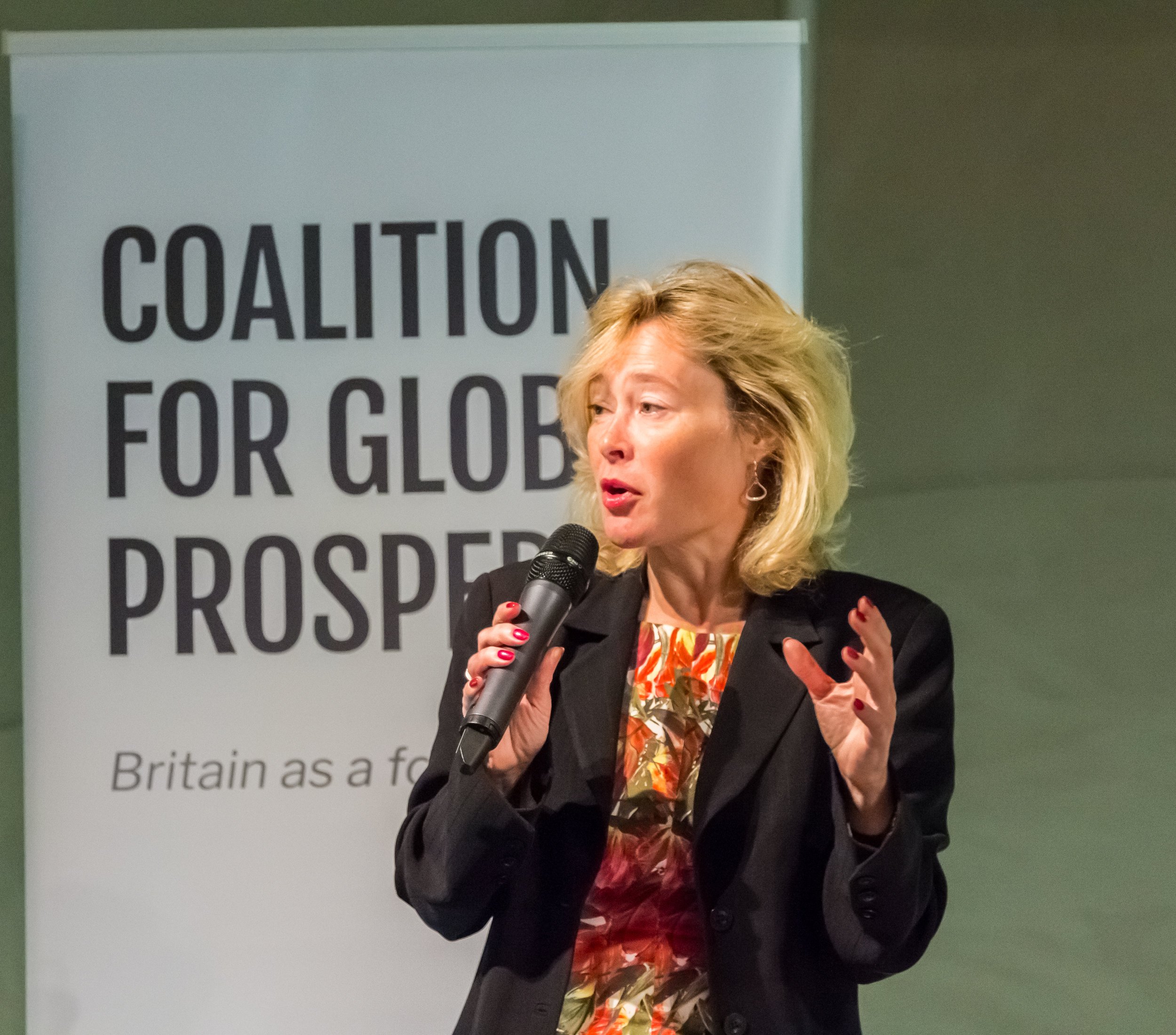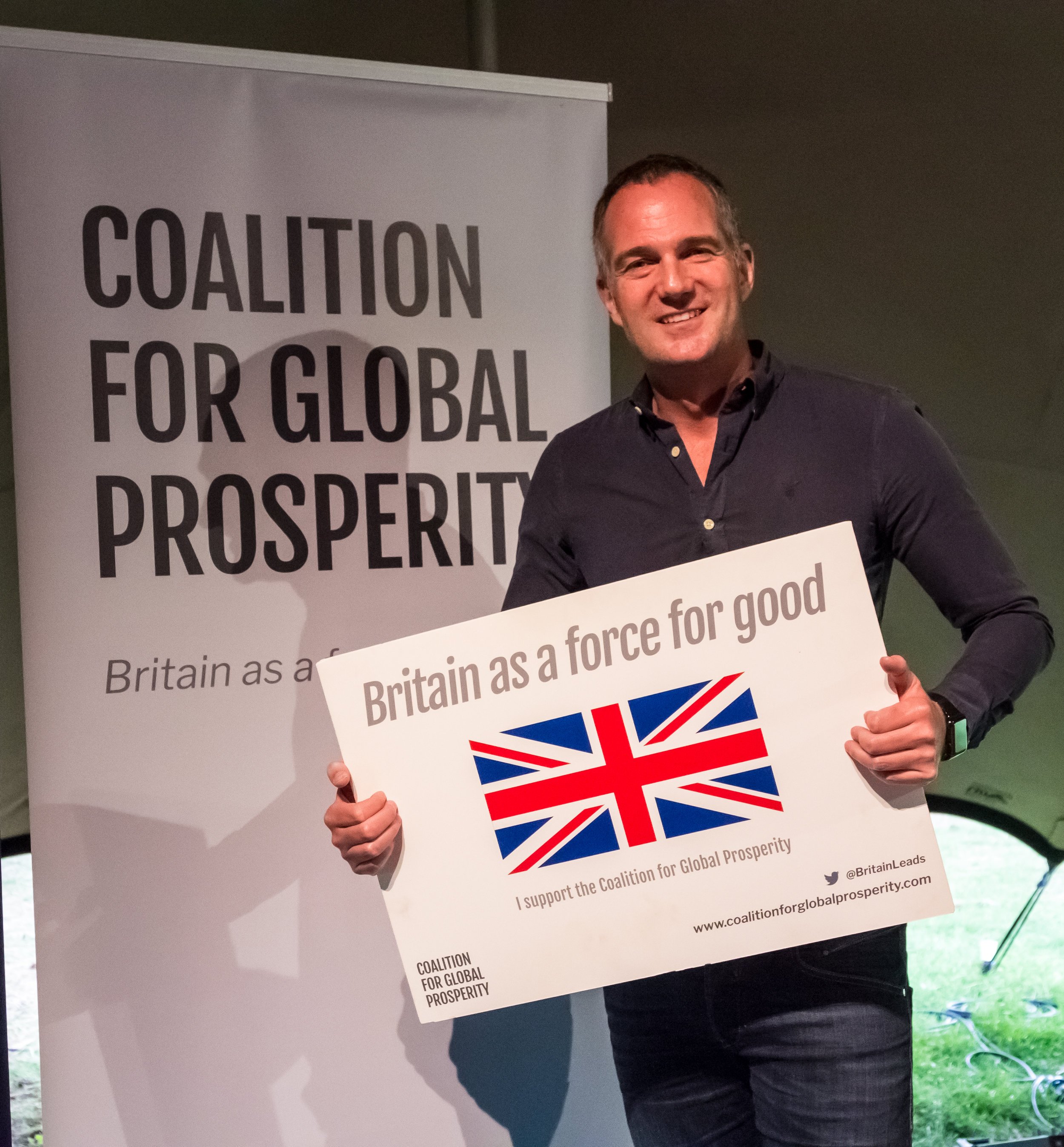The Coalition hosts Global Britain Tent at the 'Big Tent Ideas Festival'
The Coalition for Global Prosperity were proud to co-host the Global Britain Tent at the ‘Big Tent Ideas Festival’ on Saturday 8th September 2018 alongside the Legatum Institute and British Foreign Policy Institute.
Almost 2,000 people attended the 'Big Tent Ideas Festival' this weekend, which provided an exciting forum bringing together those interested (both cross-party and no-party) in the big issues of our time, from plastic pollution and Brexit to tomorrow’s technology. The festival included senior speakers from across the political spectrum including Sir Nick Clegg, the Rt Hon Harriet Harman MP and the Rt Hon Penny Mordaunt MP, and concluded in a conversation with former Chancellor the Rt Hon George Osborne.
Capitalising on the festival spirit and innovative space in the scenic grounds of Babraham Research Campus, our sessions explored Britain’s opportunities and place in the world post-Brexit, igniting ideas around development and defence, diplomacy and trade.
Our first panel, chaired by our chief executive Theo Clarke, debated the merits of utilising hard vs soft power for an outward-looking Britain.
One thread of this debate explored the dichotomous pitting of defence against aid spending. Former military men Lieutenant General Philip Jones and Johnny Mercer MP were swift to argue for viewing hard and soft power as complementary rather than acting in opposition.
Lieutenant General Phil Jones asserted that ‘conflict prevention is always better than conflict resolution. As a military guy I’m delighted to see money spent on UK Aid.’ Johnny Mercer MP went on to emphasise the need to engage constituents on this contentious issue but similarly concurred that ‘the reality is if you tell people that UK Aid is an investment to prevent future conflict, they see that makes sense.’
This cross-party panel included liberal democrat Baroness Julie Smith and executive director of the British Foreign Policy Group, Tom Cargill, who set out the expanding role of diplomacy and development in building global relationships and partners. There was a general consensus of agreement from the panellists against driving firewalls between hard and soft power players, and instead an incentive towards a joined-up approach utilising each of their respective strengths.
Public furore and criticism around aid and development dominated the conversation in the lunchtime interactive debate, chaired by Bob Seely MP. This dynamic discussion also investigated what the UK’s other international priorities should be post-Brexit. Bob Seely MP reminded attendees of the Department for International Development’s world-renowned reputation, ‘The quality of DFID and DFID projects is pretty much unrivalled internationally’, whilst also chairing debate surrounding the dual role played by DFID in both humanitarian short-term support and longer economic development of target countries.
This lively debate suitably set the scene for our post-lunch panel: ‘Britain as a force for good, how to have an effective aid budget?’ This session, chaired by Theo Clarke, brought together the experienced voices of former DFID minister Sir Desmond Swayne MP, former aid worker Peter Kyle MP, and executive director of the Overseas Development Institute and former US AID official, Alex Thier.
Employing his personal experiences in the field, Peter Kyle MP assured the audience that ‘Britain is seen as a leader in development and aid for very good reason’. However, alongside his fellow panellist Sir Desmond, Peter stressed the need to really ‘sell this’ to the general public. However, crucially they focused discussions on where improvements could be made, including abolishing DFID administration restrictions, better hiring and firing in the aid sector, and not being dictated by political targets.
The day was befittingly concluded by a speech from the festival’s organiser, George Freeman MP. Sharing experiences from his recent trip to Lebanon with our CEO Theo Clarke, George drew attention to an entire generation of Syrian girls living in refugee camps in Lebanon, who are being given a quality education as a direct result of UK Aid. He also praised the efforts of the Risk Advisory Group who have worked with local Lebanese forces to secure the border between Lebanon and Syria, supported through UK funding to keep refugees and the local community safe. George brought a close to the ‘Global Britain’ tent by calling for a continuation of such projects, through which ‘we can make Britain a force for good in the world’.













